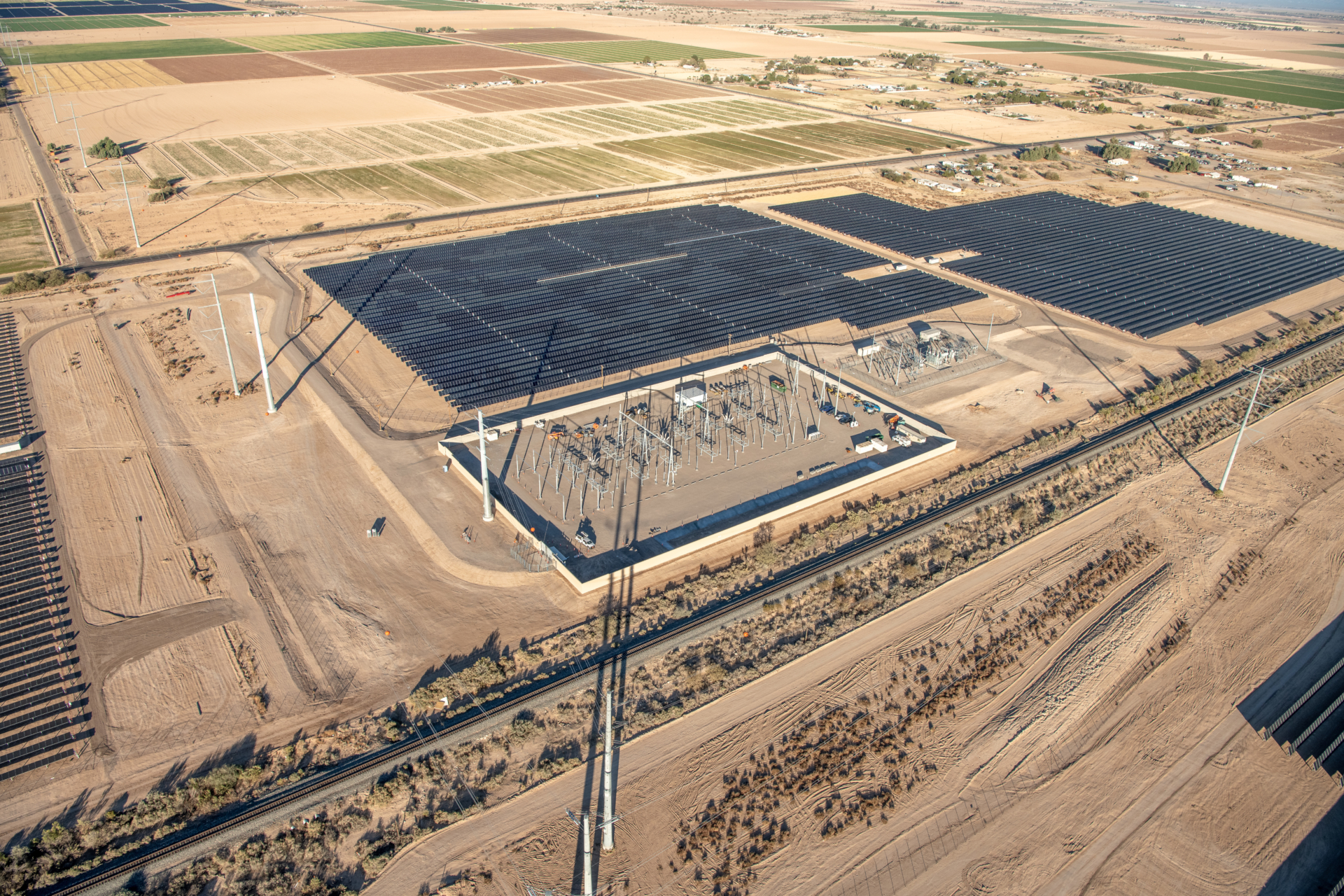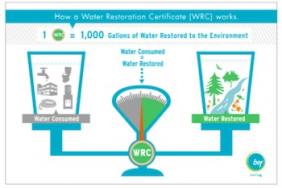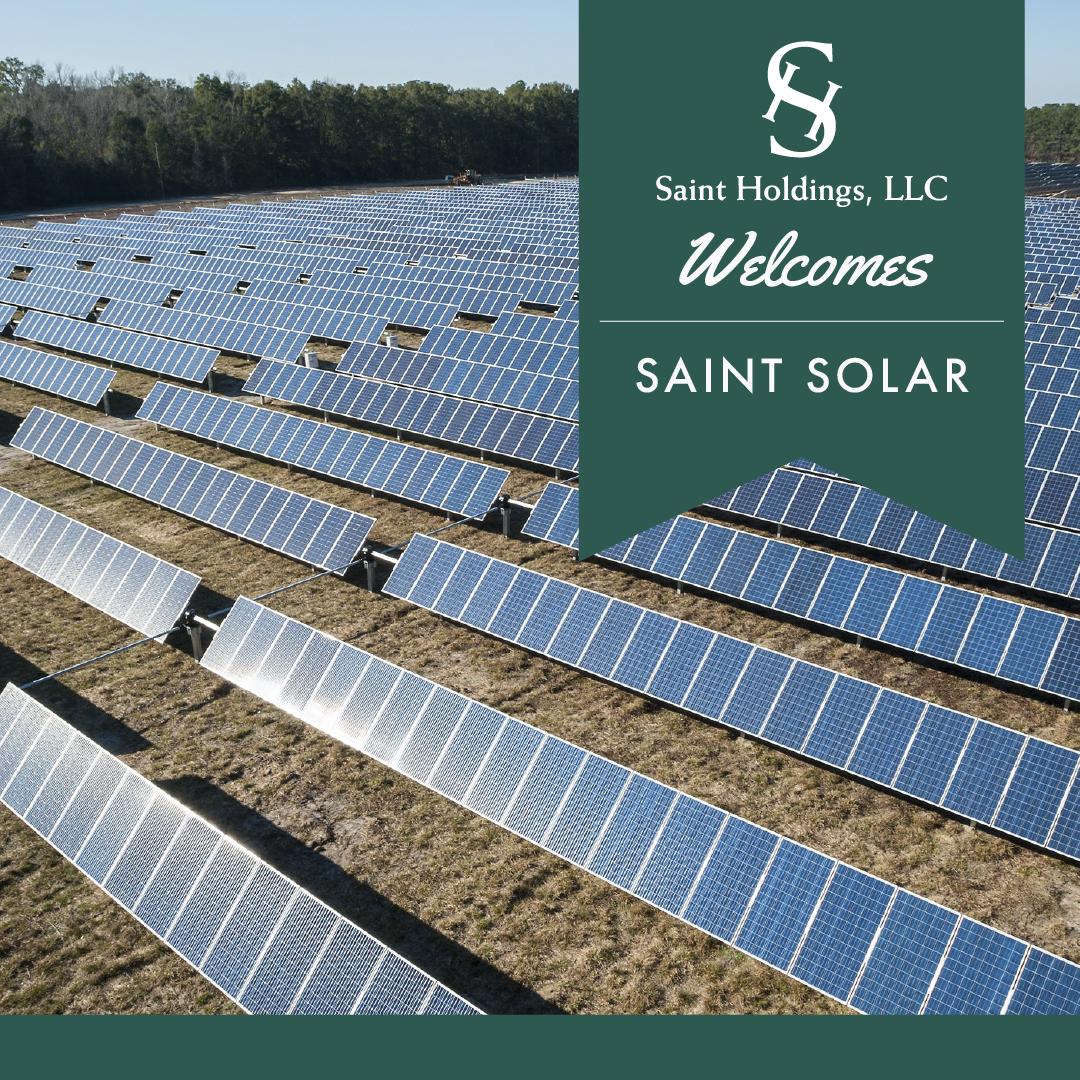On the Eve of Halloween - a notorious time for "trick-or-treat" - the non-profit City of Mesa Newsroom was once again touting one more Golden Shovel Award for making a big economic development deal.
Mesa Earns Golden Prospector Award from AAED for Deal of the Year
" The City of Mesa's Office of Economic Development was recently awarded
the Golden Prospector Award for Economic Development Deal of the Year
from the Arizona Association for Economic Development (AAED) for Mesa's
attraction of Meta's 396-acre, 2.5 million-square-foot mission critical
data center campus. The project is a capital investment of $1 billion and brings 2,000 constructions jobs and more than 200 high-tech operational jobs once finished.
✓ "I am pleased to see the hard work of our economic development team being recognized by AAED," stated Mesa Mayor John Giles. "It's truly an affirmation of the great things taking place in Mesa."d brings 2,000 constructions jobs and more than 200 high-tech operational jobs once finished. [REPEAT THAT]
✓ The economic impacts and tax revenues that this project will generate are massive. Based on industry assumptions over the first 10 years of operations, the Meta project is conservatively expected to generate more than $27.6 million in construction sales tax and electricity sales tax for the City of Mesa.
The most innovative component of the project is the unique approach to sustainability and water stewardship. Meta and the City of Mesa entered into a Sustainable Water Services Agreement, the first of its kind in the City of Mesa. This agreement allows Meta to transfer 1.79 billion gallons in Long-Term Water Storage Credits (LTSCs) to the City of Mesa to offset the Meta facility's anticipated water use for the next 20 years. These credits allow Mesa to maintain its critical Certificate of Assured Water Supply with the Arizona Department of Water Resources, which is necessary to continue to develop and grow.
(BLOGGER INSERT
SRP signs major solar deals to power Facebook data center in Mesa - AZ Big Media
Following its recent announcement to expand utility-scale solar resources to 2,025 megawatts (MW) by 2025, Salt River Project (SRP) today announced three new solar energy plants that will deliver a total of 500MW of renewable energy. Facebook announced it will be SRP’s largest off taker of these new clean energy resources, utilizing 450MW of the combined solar capacity to support Facebook’s newly announced data center in Mesa, Arizona, and help meet the company’s 100 percent renewable energy commitments.
The three projects include two 200-MW solar plants and one 100-MW
solar plant. SRP is contracting with subsidiaries of solar developers
AES, EDP and NextEra Energy Resources to construct and operate the three
new plants. . "
17 August 2021
Saints Solar - A Subsidiary of NextEra Energy Resources, LLC - Joins Other Renewable Energy Suppliers for Facebook's New Data Center in Mesa

Huge data center moves forward in Mesa despite Arizona water concerns
A massive new data center is set to be built in Mesa, Arizona, after the City Council voted in favor of a controversial development agreement.Critics noted that the huge facility would consume millions of gallons of water as the city and state struggle with dwindling supplies.
SEE THIS: https://mesazona.blogspot.com/2021/08/facebook-data-center-formerly-know-as.html
Facebook Data Center ( Formerly Known as "Project Huckleberry" ) = A LARGE WATER CONSUMER
Let's backtrack to one item on the Mesa City Council agenda 17 May 2021
| File #: | 21-0552 |
| Type: | Resolution | Status: | Agenda Ready |
| In control: | City Council |
| On agenda: | 5/17/2021 |
| Title: | Approving
and authorizing the City Manager to enter into a Development Agreement
and Sustainable Water Service Agreement with Redale LLC, for the
development of approximately 396 acres of property generally located at
the southeast corner of Elliot and Ellsworth Roads. The Agreements
facilitate the phased development of a large data center that will
generate economic benefits to the City of Mesa and authorize the
development to be a MLM Customer (large water customer) under Title 8,
Chapter 10 of the Mesa City Code. (District 6) |
[. ] INSERT
Randolph Solar Park, Solar Developer: EDP Renewables North America (200 MW)
The next new solar plant to become commercially operational will be “Randolph Solar Park,” which is slated to come online in 2023. SRP is partnering with EDP Renewables, a global leader in renewable energy production, to develop and operate this 200MW solar park located in the city of Coolidge, Ariz., part of Pinal County, adjacent to SRP’s Randolph 230kV substation. Randolph Solar will span across 1,346 acres, and construction is anticipated to begin in fall of 2022 . . .
Facebook will receive the full 200MW of energy from this solar plant.
Valley Farms Solar, Solar Developer: NextEra (200 MW)
The third project, “Valley Farms Solar” is expected to become commercially operational by December 2023.
SRP has contracted with a subsidiary of NextEra Energy Resources, the world’s largest generator of renewable energy from the wind and the sun, to develop this 200MW solar plant located in Coolidge, Ariz. The two companies have previously worked together to develop and contract a 20MW solar generation facility and battery storage system, Pinal Central Solar Energy Center, and a 100MW solar plant, Saint Solar, which began operations in 2018 and 2020 respectively.
Additionally, SRP and NextEra have plans to develop two solar-charged battery projects totaling nearly 350MW, Sonoran Energy Center and Storey Energy Center. Valley Farms Solar will be 1,900 acres in size and construction will begin in winter of 2022 . . .
SAINTS HOLDINGS LLC
Website: Saint Holdings
Twitter: @SaintHoldings
Saint Holdings is a multi-faceted real estate investment and development company with holdings in industrial, land, multifamily residential, and agriculture.
In addition, The City of Mesa and Meta partnered with Salt River Project (SRP), the electric utility provider for the project. SRP is helping Meta bring 450 megawatts of solar energy to Arizona. Moreover, Meta made a one-time $50,000 donation to the Mesa College Promise, a city-led program to grant financial support to Mesa high school graduates looking to attend community college. Meta has also partnered with the East Valley Hispanic Chamber of Commerce to host free small business and non-profit workshops and will be launching Community Action Grants in Mesa, a grant program that places the power of technology to use for community benefit, connecting people online or off, and improving STEM education programs.
The Golden Prospector Awards were established by AAED to encourage and recognize excellence, innovation, and creativity in economic development.
"We are honored to be recognized by AAED for the Golden Prospector Economic Development Deal of the Year Award," City of Mesa Economic Development Director Bill Jabjiniak said. "This award reflects the tremendous work our economic development team is engaged in to build a strong economy for the City of Mesa."
Serving as the leading statewide advocate for responsible economic development in Arizona since 1974, AAED's foundation has been rooted in education, advocacy, and collaboration to affect positive change and increase Arizona's competitive position to attract investment and create jobs. www.AAED.com
Meta is reportedly set to begin layoffs this week after a 70% fall in share price as Mark Zuckerberg chased the metaverse
"Meta, the owner of Facebook and Instagram, will begin large-scale layoffs this week, according to the Wall Street Journal.
The company has watched its share price plummet by more than 70% this year, with investors wary of big investments in underwhelming metaverse offerings that could take years to become profitable—if they ever do. And while Meta remains a juggernaut in social media, threats to that business have emerged as well, with tough competition from rapidly rising rival TikTok and privacy changes on Apple devices.
Even some Meta employees working on the metaverse offerings have been unimpressed with them, according to leaked documents, with one commenting, “An empty world is a sad world.” Investors have pressured CEO Mark Zuckerberg to scale back the company’s metaverse investments, to no avail.
Zuckerberg believes the metaverse is the company’s future and says it will require more than $10 billion in annual investment. The effort has cost the company $15 billion since the beginning of last year, according to the Journal. Meta’s rapidly rising expenses caused its free cash flow to fall by 98% in the latest quarter.
Layoffs at Facebook come after even deeper ones at Twitter, where new owner Elon Musk insisted they were needed, tweeting on Friday, “There is no choice when the company is losing over $4M.”
Meta’s woes this year have caught many investors off guard. . ."
RELATED CONTENT
In August 2019, the Arizona Municipal Water Users Association built a 16-foot pyramid of jugs in its main entrance in Phoenix. The goal was to show residents of this desert region how much water they each use a day—120 gallons—and to encourage conservation.
“We must continue to do our part every day,” executive director Warren Tenney wrote in a blog post. “Some of us are still high-end water users who could look for more ways to use water a bit more wisely.”
A few weeks earlier in nearby Mesa, Google proposed a plan for a giant data center among the cacti and tumbleweeds. The town is a founding member of the Arizona Municipal Water Users Association, but water conservation took a back seat in the deal it struck with the largest U.S. internet company. Google is guaranteed 1 million gallons a day to cool the data center, and up to 4 million gallons a day if it hits project milestones. If that was a pyramid of water jugs, it would tower thousands of feet into Arizona’s cloudless sky.
Alphabet Inc.’s Google is building more data centers across the U.S. to power online searches, web advertising and cloud services. The company has boasted for years that these huge computer-filled warehouses are energy efficient and environmentally friendly. But there’s a cost that the company tries to keep secret. These facilities use billions of gallons of water, sometimes in dry areas that are struggling to conserve this limited public resource.
“Data centers are expanding, they’re going everywhere. They need to be built in a way that ensures they are not taking critical resources away from water-scarce communities,” said Gary Cook, global climate campaigns director at Stand.earth, an environmental advocacy group.
Google considers its water use a proprietary trade secret and bars even public officials from disclosing the company’s consumption. But information has leaked out, sometimes through legal battles with local utilities and conservation groups. . ."
✓
Yes, data centers use a lot of water. But a Utah company shows it doesn’t have to be that way.
". . .Beyond all the gadgets, Novva offers one innovation that should at least pique the curiosity of Utah’s drought-stricken communities: Compared to most massive data centers around the state and the world, Novva uses a fraction of the water.
There are those who might
shrug off the center’s technology, like security drones so finely tuned
they can detect vibrations that aren’t due to wind. Or those who turn up
their nose at more data centers along the Wasatch Front, given the
amount of land they consume and other environmental concerns. But with
the rise of the internet, the surge of streaming, an influx of smart
devices and a future of autonomous vehicles, big server farms are
increasingly a mainstay of life. . .
As climate change fuels drier conditions and the West’s current “megadrought” shows no signs of ending, some of those arid communities are protesting water-guzzling data facilities. In the early 2010s, Utahns worried so much about the NSA data center’s water consumption — along with Edward Snowden’s revelations that the agency was illegally spying on U.S. citizens — that a Republican legislator proposed shutting off its supply.
In 2020, Google found itself in a legal battle with a utility provider in Red Oak, Texas, which insisted it didn’t have enough water to meet the company’s 1.5 billion-gallon annual need. And last year, the vice mayor of Mesa, Ariz., called data centers an “irresponsible” use of water.
So how much water do data centers use?
X






.png)

.png)
.jpg)
.jpg)
.jpg)


No comments:
Post a Comment